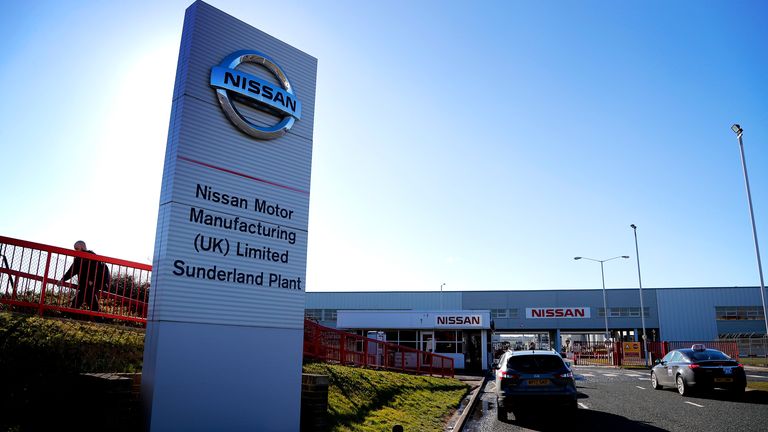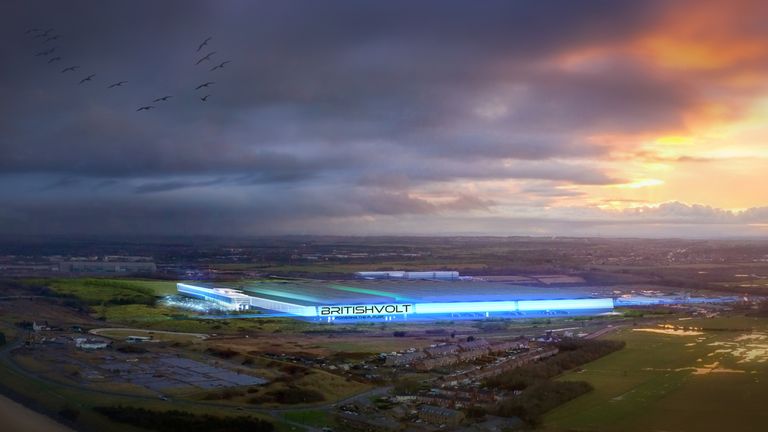Government must back its commitment to electric vehicles with financial support for new battery gigafactories and manufacturers considering where to build the next generation of cars and vans, Vauxhall’s parent company has told Sky News.
Stellantis, which owns the Peugeot and Fiat brands as well as Vauxhall, is currently in talks with ministers over whether to commit to building a new electric vehicle at its Ellesmere Port plant.
The company is seeking incentives from business secretary Kwasi Kwarteng to commit to replacing the current petrol and diesel Astra model with an electric vehicle, possibly its Vivaro-e model.
The decision has been given added urgency by the government’s ban on new petrol and diesel engine vehicles from 2030, a decision Stellantis has said makes anything but an electric model unviable at Ellesmere Port.
Earlier this month Mr Kwarteng described talks as “very positive” but Alison Jones, Stellantis’ UK group managing director, told Sky News no decision had yet been made.
She called on the government to make good on its rhetoric and back electric vehicle production in the UK, which lags behind competitors in Europe.
“The cost of manufacturing has practical components to it, energy being one of them. So when we’re considering what it takes to manufacture in the UK compared to other countries we have to assess the costs.
“So the discussion with government is OK, how do we make our manufacturing base relevant and able to be done within the UK when you are competing effectively with other countries for that investment?”
This week Nissan will announce it is building a new gigafactory in Sunderland with government support to enable it to dramatically increase electric vehicle production at its existing plant.
Ms Jones said Nissan’s investment emphasised that domestic battery manufacturing capacity should be a priority.
New “rules-of-origin” regulations agreed as part of the Brexit deal mean that batteries will have to be produced in the UK or Europe by 2027 if British cars are to avoid damaging tariffs.
“We are part of Europe, geographically, we are a large market within Europe, so we should absolutely be considering asking our government to consider really pushing forward for that investment they spoke about an industrial strategy to end sale of combustion engines by 2030 and plug in hybrids by 2035.
“So contribute. Contribute in terms of that investment we need. You can’t just say it, you have to work out the investment required.
“We have been really clear, to be able to move to electric and plug-in hybrid vehicles we need the technology, the infrastructure for customers to be able to charge their vehicles, you need the energy companies to work on making that readily available.
“And then you need consumer behaviour, and where the government comes in is to to influence with investment, and driving consumer behaviour.”



